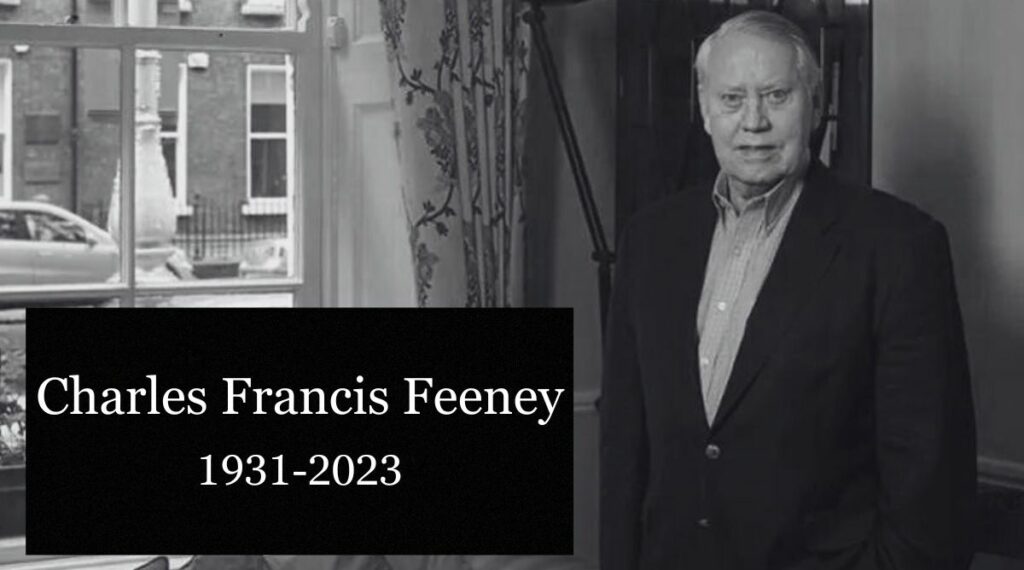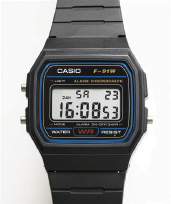
The holidays mark the time of year that we focus on giving. We call this time of year the giving season. What does that mean? It is a cliché that reminds me of another one, charity begins at home. Why would anyone need to say that?
Don’t we homo sapiens, by nature, give to those nearest and dearest to us? This giving promotes our very survival. True charity should be so self-interested. So, if charity does begin at home, then where does it end?
There is a man who could answer the question had he not passed away a month ago, Charles Feeney. If he could, he would tell you that charity ends when there is nothing left to give.
For an Irish American, he was more than the “plastic Paddy” that he called himself. How have we never heard of him?
Chuck Feeney’s privacy matched his humility. Anonymity was often a condition of his gifts. His early life was almost Dickensian. He grew up during the Depression in a New Jersey, Irish American neighborhood. He had an adoring mother who spent time helping neighbors and other less fortunate souls.
His mother’s compassion made a clear impression on him. He, on the other hand, looked for ways to help the family out financially. He was known for doing all kinds of odd jobs like shoveling snow. Compassion and hard work were the two main legacies of his childhood.
Feeney served in the Navy in World War II. That experience changed his life. An idea was born then as he watched soldiers buy goods with no import tariff.
The other benefit of his service was the GI Bill. It allowed Feeney to realize his dream of being the first college graduate in his family. Since he was going to school, Chuck did not shy away from aiming high. He applied and was accepted at Cornell. This experience shaped him intellectually and socially.
At Cornell, he met the friends who would become lifelong business associates. But he was not a typical Cornell student. He stood out as he showed his ability to find ways to earn money while he was studying. He made and sold sandwiches to other hungry college students.
The first duty-free store started in, where else, Shannon Airport, in 1946. Duty-free was the idea that Feeney had in the Navy, and he wanted in. The group that Feeney co-founded was Duty Free Shoppers.
DFS opened their first store in Hawaii; selling liquor and perfume to Japanese tourists. The concept of duty-free shopping spread around the world right when travel became affordable for most people.

Suddenly, Chuck Feeney had more money than he knew what to do with. He had never been comfortable with the conspicuous consumption lifestyle of the rich and famous. He was a guy who owned a Casio watch, took public transportation, and lived in an apartment with his wife.
His biggest vice was entertaining well at times. He had realized his dreams, but the thought of having so much money began to haunt him. Troubling his thoughts were two ideas; that money could crush his family and the Irish proverb, “There are no pockets in shrouds.”
Feeney decided that there was nothing to do but get rid of all that money, but how? He devised a plan to give away eight billion dollars, and being him, he followed through with it.
His decision turned his attention backward, to the country of his ancestors. Ireland in the 1980s was at the peak of another significant wave of emigration.
He believed that the education system was what needed to be fixed. It had been underfunded for years and had not kept pace with the global economy.
Where else would an underdog go but to the underdog county, Limerick? He started building. In 1989, the Institute of Higher Learning, Limerick, became the University of Limerick.
This transformation was due in part to Chuck’s donations. In total, Feeney contributed over 730 million dollars to higher education in Ireland.
Feeney’s grandmother came from Fermanagh, Northern Ireland. With the university up and running, he wasn’t long seeing something else in Ireland that he wanted to fix.
Enniskillen had been a recent scene of violent unrest. An IRA bomb killed eleven people on Remembrance Day in 1987.

While the Troubles had peaked a decade earlier, there was still destabilizing unrest in the North. Feeney met Gerry Adams and found in him a man that could do business. Their relationship was one of the building blocks of the Northern Irish Peace Process. Feeney helped to persuade then President Bill Clinton to issue a US Visa to Gerry Adams.
From there, Feeney was central in negotiating Bill Clinton’s visit to Belfast. That visit is often referred to as a watershed moment in the Northern Irish peace process. Feeney felt that both sides needed to sit down in face-to-face talks and that the US needed to be involved. Feeney funded a Sinn Fein office in Washington DC. He paid for that himself.
His charity group, Atlantic Philanthropy, did not get involved in politics. While many of these gestures created controversy, they also built inroads that led to the Good Friday Agreement. Feeney was the invisible force that helped break centuries of bad faith and resentment.
A few things that Feeney put his hand to in Ireland did not turn to gold. He formed an agency to investigate government corruption, the Centre for Public Inquiry. That was a mistake.
He must have sensed that all his donations were not hitting their marks and being used as he intended. Through the agency, he tried to correct it. The story that followed that agency is so confusing that I won’t even attempt it. We can leave it at,
Feeney’s appointed whistleblower found himself in hot water and sending the whole thing up in smoke. Feeney found an Irish wall that he could not knock down.
Feeney continued to give his money away. Atlantic Philanthropy succeeded in giving away his eight billion dollars. Ireland received 1.2 billion of that money.
It is safe to assume that the Celtic Tiger had New Jersey roots and wore a Casio watch when no one was looking.Charity may begin at home but it ends when we do.
See more of Lisa’s Akron Irish columns here.

*Lisa O’Rourke is an educator from Akron. She has a BA in English and a Master’s in Reading/Elementary Education.Lisa is a student of everything Irish, primarily Gaeilge. She runs a Gaeilge study group at the AOH/Mark Heffernan Division.She is married to Dónal and has two sons, Danny and Liam. Lisa enjoys art, reading, music, and travel. She enjoys spending time with her dog, cats and fish. Lisa can be contacted at [email protected].
Please Send Akron area events to my email so we can share them with our readers!







Monthly newsmagazine serving people of Irish descent from Cleveland to Clearwater. We cover the movers, shakers & music makers each and every month.
Since our 2006 inception, iIrish has donated more than $376,000 to local and national charities.
GET UPDATES ON THE SERIOUS & THE SHENANIGANS!